What Is Your Good Quest?
How do you want to change the world and what are you doing to get there?

As the fall semester begins to come into view, I’m thinking about my goals for the upcoming semester. Regularly taking stock of where you are now and where you want to go is a very beneficial practice and helps you to re-align in areas where you may be straying off course. While there are a variety of strategies that can help you do this, one framing that I find useful is a personal vision and mission.
This week I’m thinking about vision and mission with two pieces I read last week in the backdrop. The first is Dave Blanchard’s 2023 annual letter to the Praxis community. In it, he riffs on the themes from the second piece written by entrepreneurs
and entitled “Choose Good Quests.”These pieces resound with calls to action but these two have been sticking with me:
Re-risk instead of de-risk.
Think in decades, not months or years.
How might these themes shape how you and I invest our time, talents, and treasure?
Vision & Mission: How do you want to change the world and what are you doing now to make it happen?
While mission and vision are similar concepts and are often challenging to keep straight, they have different emphases. A vision describes who you want to become while a mission describes what you are doing to get there. As Tom Silva writes:
A vision statement should answer a fundamental question: What does the world look like if we succeed?
A mission statement, on the other hand, is what the company does in the present to accomplish this goal.
While your personal vision and mission may differ quite drastically from those of an organization, looking at the mission and vision statements from some organizations can be a helpful tool to get a feel for the difference between the two.
For example, Google’s vision is “To provide access to the world’s information in one click.” They are pursuing that vision via their mission which is “To organize the world’s information and make it universally accessible and useful.” LEGO is another great example. Their vision is to “Invent the future of play” and their mission is to “inspire and develop the builders of tomorrow.”
Using a prototyping mindset to develop your vision and mission
In the context of the prototyping mindset, vision is your desired state and the mission is the effort of the controller which implements the feedback algorithm. First, you compare your current state to your desired state. Then, based on the difference between the two, you make a change. Your vision determines the direction of the change and your mission describes what you’ll do to get there.
At this point, it’s worth taking a few moments to jot down some ideas about your own vision and mission. You might find it helpful to take a long walk or sit down outside somewhere away from your phone and computer for a while with a pen and a notebook. Spend some time thinking about your long-term goals and your vision. What are your current aspirations for making an impact on the world around you? After you jot down some ideas, think about what you are doing right now to achieve that goal.
Remember that the goal here isn’t to achieve your vision in the next 5-10 years. Sure, there might be some elements of your vision that you can accomplish in the near future and you definitely want to have some concrete plans for how the things that you do will help you to move closer to making your vision a reality. However, most of the visions that are most worth pursuing are good and hard. As Trae and Markie write:
There are certainly bad quests that are hard, and (a few) good quests that are easy. But most of the remaining good quests are difficult to make profitable, require heavy research and development spend, or are just incredibly technically challenging, to the point of near impossibility.

What is your good (and hard) quest?
I’ve written before about my own vision, mission, and core values. My own vision and mission are deeply shaped by my identity as a Christian and follower of Jesus. But as I reflect on the vision and mission I drafted at the beginning of this year in light of the idea of choosing good quests, I feel a nudge to be even bolder in the quest I want to pursue.
It’s here that Dave Blanchard’s call to re-risk is striking a chord. In his exhortation to the Praxis community (and to all of us by proxy), Dave challenges us to flip the common narrative of trying to reduce risk at all costs. If we really want to make a difference in the world, we need to choose good quests, and most often, the quests which can have the most signficant influence are also hard quests; quests like trying to address problems in renewable energy, artificial intelligence, or understanding the human brain. These quests are inherently risky.
We’re often taught to shy away from risk. To play it safe. And to be sure, there are rational reasons to do this. We all want to develop a stable financial footing to support ourselves, our families, and our loved ones. We want jobs and careers that will allow us to enjoy life and not crush us under unbearable workloads. But it’s easy to let this desire for stability dominate. Should stability really be our goal?
Dave summaries the Good Quests thesis:
It is a moral imperative for well-resourced founders and funders to go after the good, hard challenges our world faces, and each of us should seek to maximize our missional capacity based on our experience, talent, and the people and financial resources we can pull together.
Later he writes, borrowing from the ideas of Andy Crouch:
[A]s our authority (our capacity for meaningful action) increases, we are responsible to move toward vulnerability (our exposure to meaningful risk).
This is challenging for sure, but I wonder what it might look like for us to sit with this call to action and consider what it might mean in our own contexts. As we seek to develop more authority to act and make change, how might we move toward vulnerability, pushing against the status quo to re-risk our vision?
Join me in pondering your quest this week
As a college professor, I am passionate about serving emerging adults during the formational years of transition from adolescence into adulthood. I want to see young people thrive and flourish, developing not only the skills that help them to make a difference through their work in their technical field of expertise, but to be part of the process of planting, watering, and pruning the development of their virtue and wisdom.
This week I hope you join me in spending some time in a quiet place away from the craziness of it all to sit and ponder: what is your good quest?
Think about big quests but think about hard ones too. Our world is broken. We all face many problems; both in the spheres close to us and our broader cities, countries, and world. Meaningfully addressing even small parts of these problems will take time on the scale of decades, not months or years. But the challenge is one worth facing. Let’s re-risk our vision and mission and choose good, hard quests that have the potential to cultivate significant change for us and the world around us.
The Book Nook
Y’all are probably sick of me writing about Big Little Breakthroughs by Josh Linkner but I finally finished it this week. I think I’ve been in too many books at the same time lately which has been slowing me down!
I really liked this one and got a lot of inspiration from the last half of the book which is filled with practical ideas about how to embrace and stimulate your creativity. Here are just a few of the ideas that Josh recommended that I’m planning to implement into my own practice. Pick up the book to learn about these in more detail, it’s worth your time!
Start Before You’re Ready: This one is peak Prototyping Mindset. You just need to embrace a bias toward action. You’re never really ready to go.
Open a Test Kitchen: Inspired by the way that restaurants innovate with a test kitchen where they can embrace constant experimentation, how can you incorporate the same idea into your craft and push the envelope?
Reach for Weird: Like it or not, being the only is often better than being the best. Embracing weirdness (e.g., Johnny Cupcakes) is one way to set yourself apart.
Use Every Drop of Toothpaste: We often think that being resource-constrained is a disadvantage. Often the opposite is true and constraints help to stimulate our creative thinking.
Fall Seven Times, Stand Eight: Longevity is key. Failure is inevitable. Get knocked down? Get back up.
The Professor Is In
Last week I was up in San Francisco for the Chan-Zuckerberg Initiative’s (CZI) Annual Imaging meeting. The meeting was a great experience and I learned a lot both about what CZI is up to in this space (e.g., the CZ Imaging Institute) and some of the good work that is being done across the community that they are building.
This was my first trip up to SF since the pandemic and I had a nice time. Not too much time to explore the city with a packed schedule, but I did manage to get out for a nice (and very hilly) run one morning.
Hard to believe that the high was around 62 ˚F while it was pushing 100 ˚F just a few hours south in Los Angeles!
Leisure Line
Pizza is still king, but the Ooni is pretty nice for making naan bread as well. I’ve been tinkering around with a few different recipes, but this one from AllRecipes turned out really nice!
Still Life
I’ve been wanting to get up to the top of Telegraph Hill to see Coit Tower for a long time but have never managed it. I still didn’t manage to get their while the tower was open, but walked down one morning before breakfast to get a view of the tower and of the city from the top of the hill. Beautiful!
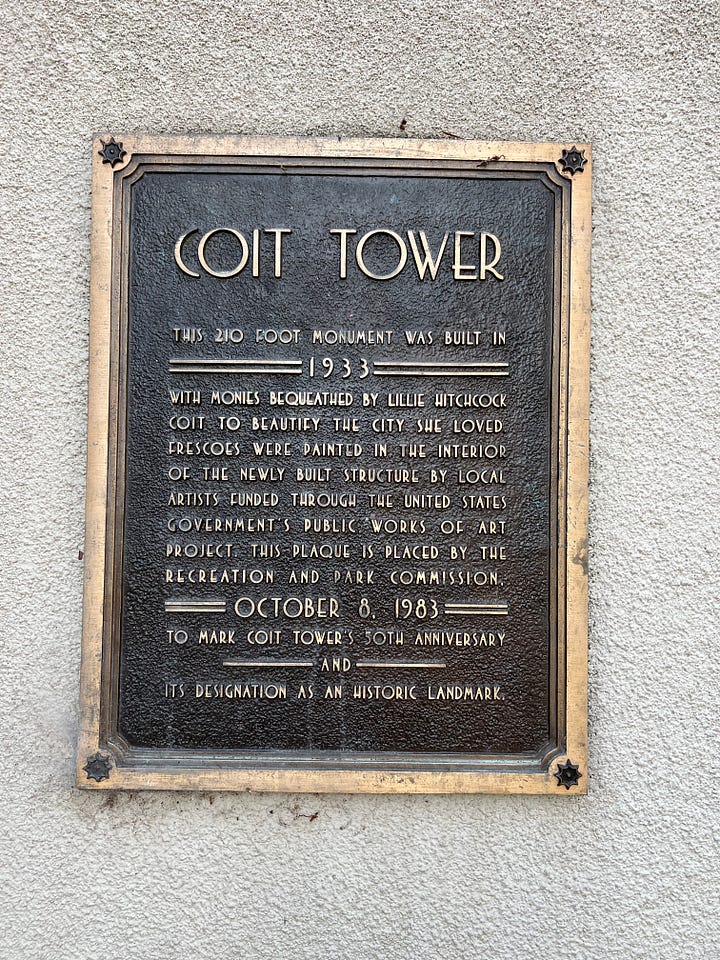
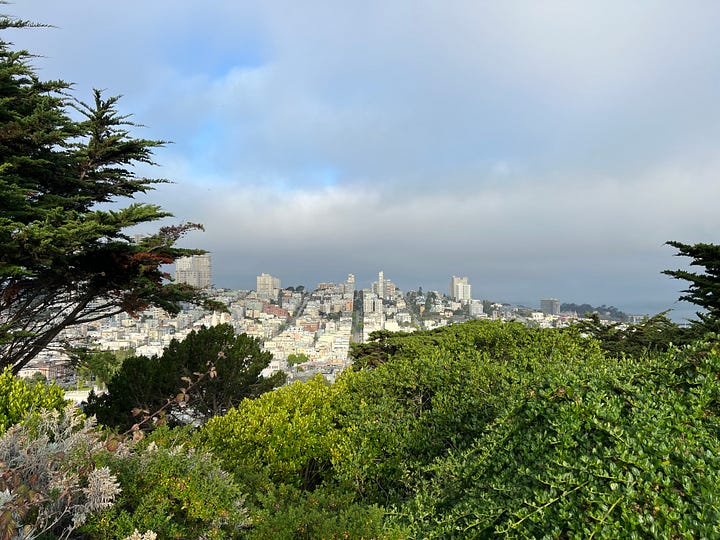
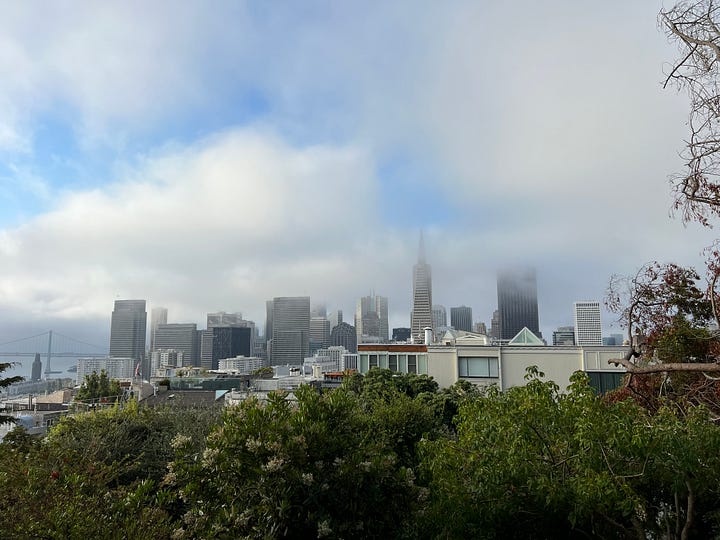
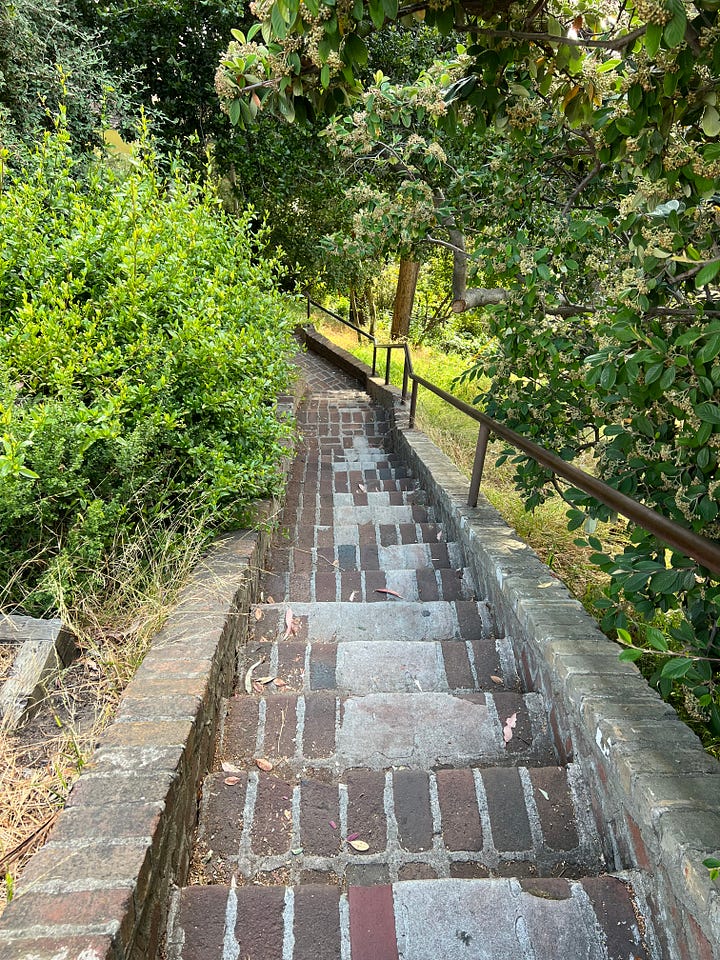



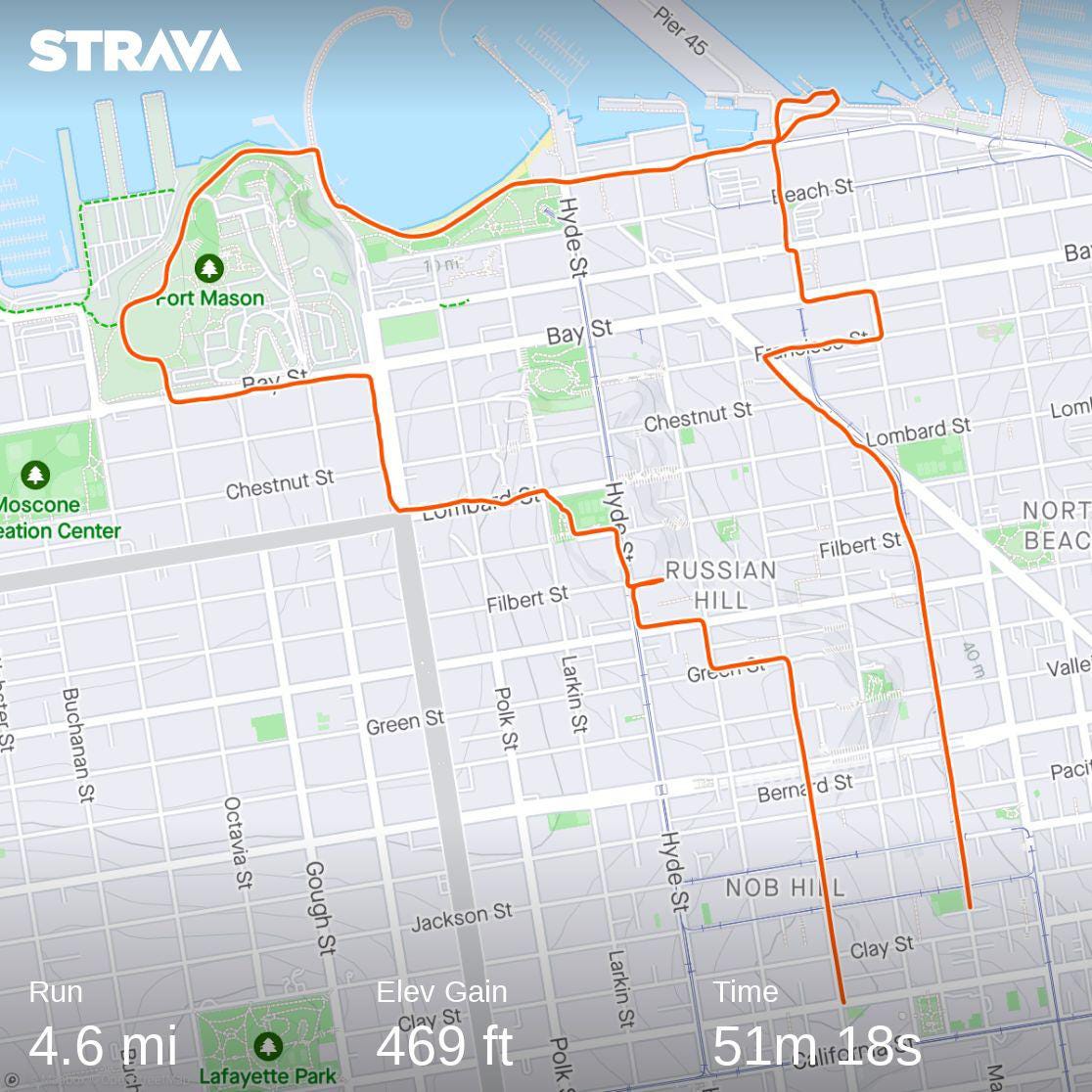
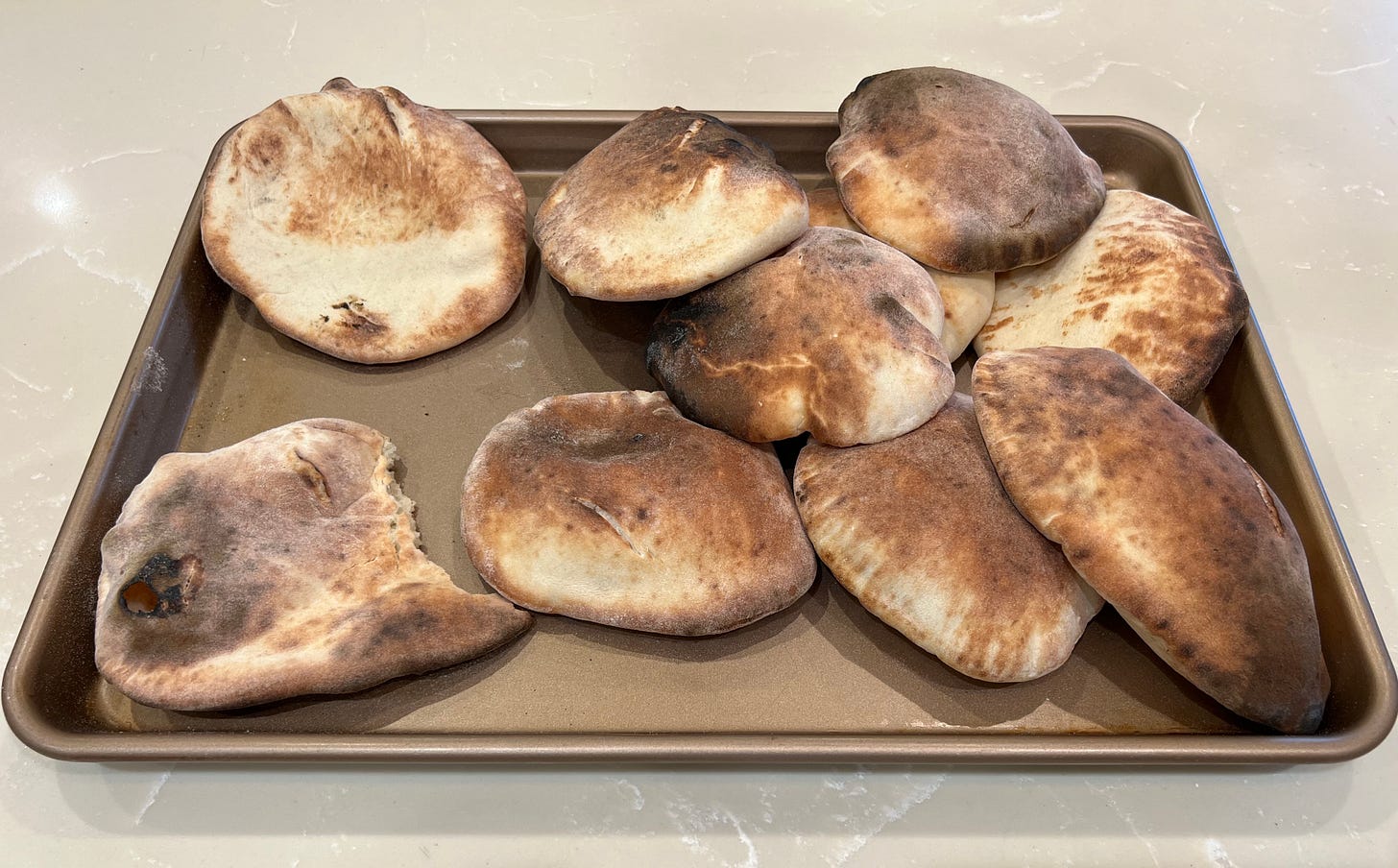

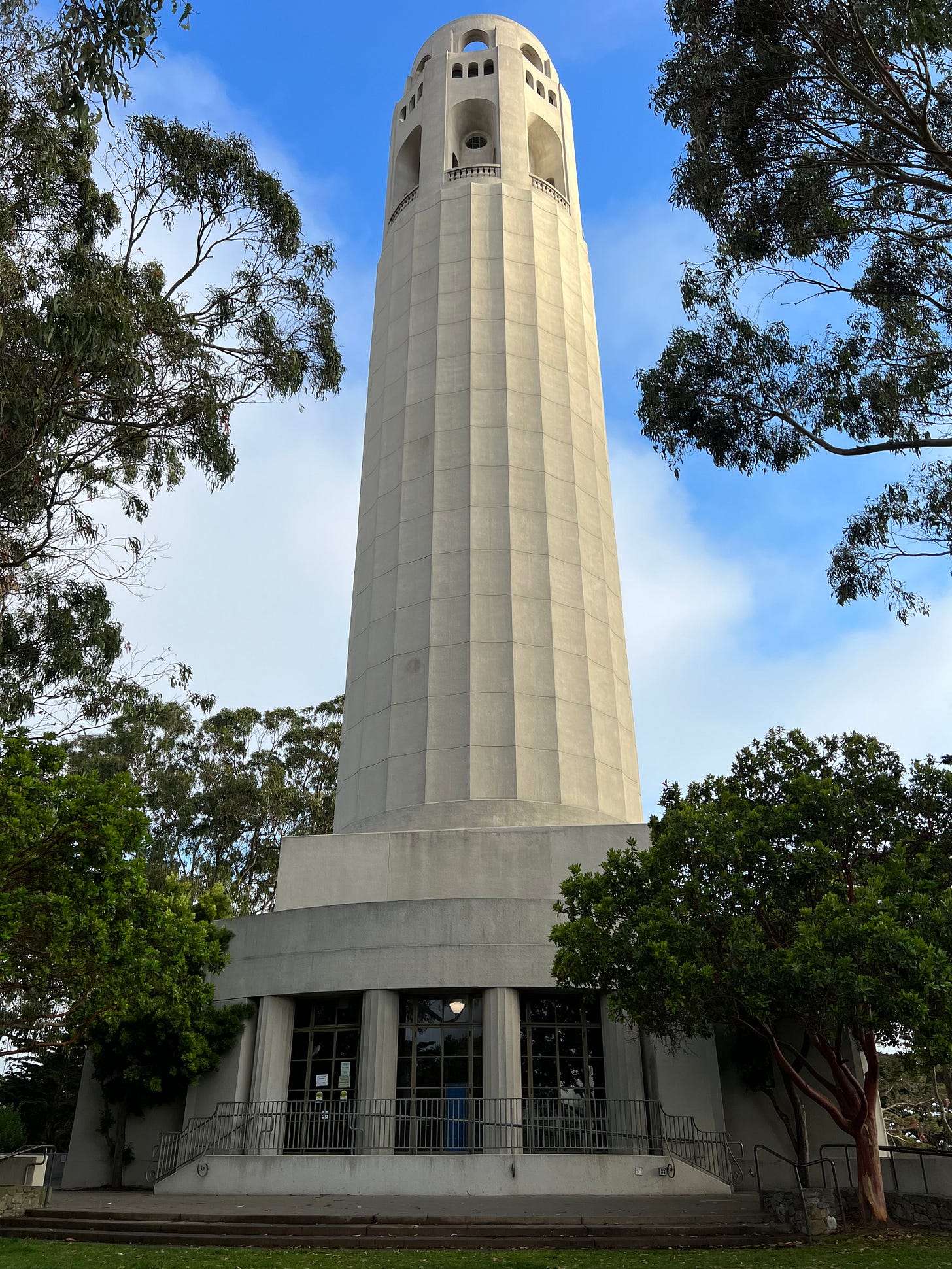
To answer the question @joshbrake asked in The Absent-Minded Professor: my good quest is to share my takeaways from my #phd to help other avoid doing the same mistakes. This is why I am writing my newsletter, https://path2phd.substack.com/